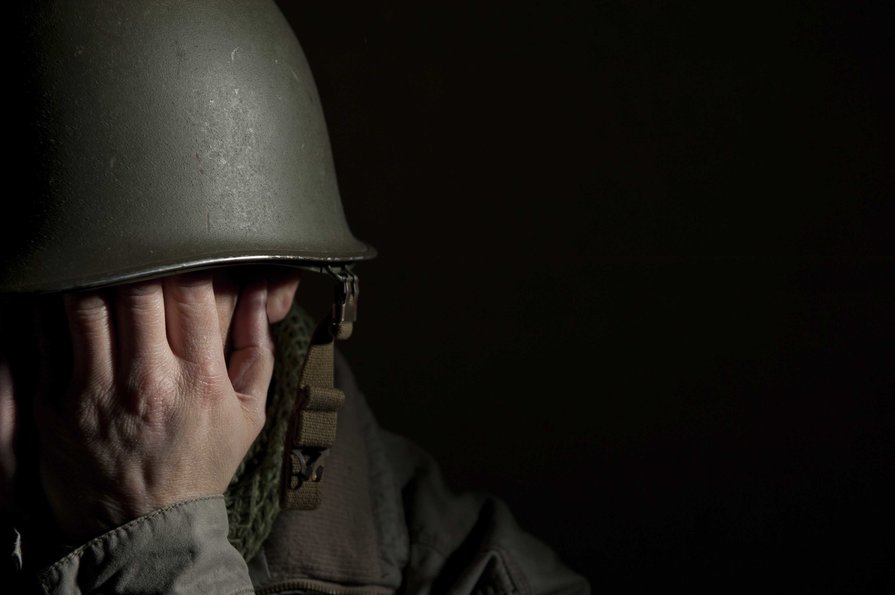
Post-traumatic stress disorder (PTSD) is a mental illness that occurs several weeks or months after a severe life-threatening stressful event - military operations (both military and civilians), captivity, man-made disasters or natural disasters, attacks, rape, terrorist acts.
These events can be experienced by the individual directly or indirectly - for example, he witnessed how others were seriously injured, killed or exposed to mortal danger; or learned about events that happened to close relatives or friends.
Post-traumatic disorder is a person's "stuck" in an extreme situation, he constantly mentally returns to it and cannot forget. Although the situation has remained in the past, the patient constantly experiences it - mentally, or in nightmares, he returns to it again and again.
Most often, a person does not share his experiences with those around him, he keeps everything in himself. He is not able to objectively assess his well-being and cope with emotions, begins to react inadequately to the surrounding reality, does not perceive new information, tries to isolate himself from communication, reacts sharply to criticism and jokes.
Often the consequences of PTSD are depression, neuroses, disturbing and psychosomatic disorders, psychopathic manifestations with affective-destructive forms of behavior, as well as dependence on alcohol and drugs.
In addition, between half and three-quarters of patients with PTSD suffer from comorbid chronic pain, and this high overlap indicates the presence of common pathophysiological processes underlying both disorders. It is possible that pain may evoke memories of the traumatic event, exacerbating mental symptoms, or conversely, reminders of the traumatic event may activate sensory symptoms of re-experiencing that increase pain.
For many patients, PTSD symptoms persist 20 years after the injury, and the incidence often increases over time. The lifetime prevalence of PTSD in veterans is 15-20% or more. Epidemiological studies show that more than half of US military veterans also have major depressive disorder along with PTSD. which can make it difficult to adequately treat both conditions, as well as mood changes, anhedonia, guilt, sleep disturbances and difficulty concentrating, and alcohol and substance abuse.
Despite the disabling nature of PTSD and its relatively high incidence in veterans, conventional treatment options remain limited. There are a number of empirically supported psychotherapeutic treatments for PTSD, with trauma-focused cognitive behavioral therapy (TF-CBT) and eye movement desensitization and reprocessing therapy considered the most effective. However, psychotherapeutic treatments have a significant percentage of patient non-response.
A number of pharmacotherapies have also been proposed, with selective serotonin reuptake inhibitors such as paroxetine and sertraline showing relative success. Unfortunately, pharmacotherapy has an even higher non-response rate than psychotherapy and numerous side effects. Meta-analytic studies show only small differences between pharmacotherapy and placebo, especially in veterans with PTSD. As a result, a significant proportion of patients with PTSD remain resistant to treatment. Taken together, these data highlight the urgent need for new effective treatments for this disorder.
The Expio Center specializes in the development and implementation of the latest methods of treating mental disorders, in particular PTSD and depression, based on an integrative, multimodal approach that involves working with the patient at the levels of the psyche, brain and body.
Ketamine therapy, which targets both the mind and pain mechanisms, is a particularly effective treatment for treating and preventing post-traumatic stress and other effects of mental trauma. According to psychiatrist Dennis Charney, a researcher at the Icahn School of Medicine at Mount Sinai, “The findings provide an excellent starting point that could lead to the development of new treatments against PTSD and stress-induced depressive behavior.”
Guided by the principles of holistic medicine, combining trauma-focused psychotherapy with ketamine infusions, transcranial electrical stimulation (TES), rehabilitation of the brain "Neurohelp", vagus nerve stimulation, blockade of the stellate nerve ganglion and other modern methods. significant improvements in the health status of patients with PTSD can be achieved.
What is ketamine therapy and how it is used to treat mental disorders in the military - in the material of hromadske tv.
